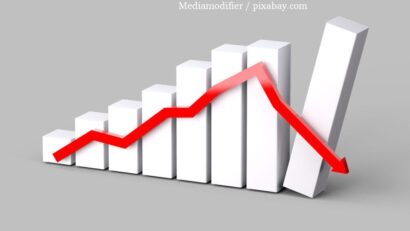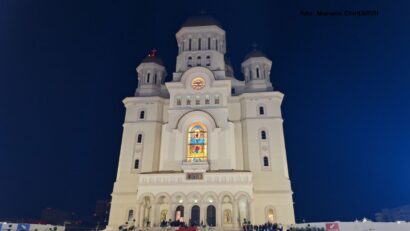NATO Representatives in Chisinau
NATO shows concern for the complicated situation in the Republic of Moldova.

Bogdan Matei, 20.11.2015, 13:24
The North Atlantic Alliance has showed concern for the complicated situation the Republic of Moldova is currently in, and has urged Chisinau to step up efforts to overcome the political crisis and to form a new pro-European parliamentary majority. This is supposed to fill in the power vacuum created by the dismissal, through a no-confidence motion last month, of the 3-party government, made up of the Liberal Democratic Party, the Democratic Party and the Liberal Party. Tabled by the Socialists and Communists in opposition, the motion was also voted by the Democratic Party MPs, who, together with the pro-Moscow left, accused the Liberal Democrat Prime Minister, Valeriu Strelet, of involvement in corruption scandals.
The vice-president of the NATO Parliamentary Assembly, Paolo Alli, has pointed out that the Republic of Moldova can continue to rely on the Alliances support, but it will have to implement the required reforms in fields as the judiciary or the anti-corruption fight. A NATO delegation went to Chisinau last week to examine the program for the reconstruction of the republics defense capabilities. The program, in which important allies such as the US, Germany, Turkey and Romania contributed funds and expertise, was drafted at the NATO summit held last year in Wales, when NATO included the defense of partner countries, among which the Republic of Moldova, Ukraine and Georgia, in its own strategy.
Threatened by Russias fresh territorial appetite and by its attempts to stifle any aspirations for European and Euro-Atlantic integration, Moscows former colonies were also mentioned in the final declaration of the NATO eastern flank summit held in Bucharest, which brought together the Central and eastern European NATO members. An advisor to the former president of Romania, Traian Basescu, the director of the Center for Conflict Prevention, and an expert in the ex-Soviet area, Iulian Chifu, explains:
Iulian Chifu: “This is the first step in a very robust action of the Alliance meant to defend its foreign partners in the east and to support them in developing an increased defense capability, in order to boost their security and defense capacity. The document says the Alliances defense strategy also includes the partner states. This does not mean that they will benefit from Article 5 provisions or that there is a joint defense plan. It is actually in the Alliances interest to include these states in a common strategy and support them in developing their own defense capabilities, so that they can ensure their own security, of course with the contribution and support of the Alliance in building such capabilities.
The Liberal Anatol Selaru, the acting Defense Minister, who had been initially dismissed alongside the entire Strelet Cabinet, continues to plead for tighter relations with NATO. This anti-Soviet militant, who defines himself as a Romanian politician from the Republic of Moldova, says that, in the context of the prolonged military conflict in Ukraine and of the presence of Russian troops in the breakaway region of Transdniester,
Anatol Selaru: “This is the best solution, considering that 25% of Moldovas territory is occupied by the Russian army. Major things cant be done in a week, but things may well happen, such the one experienced by the Ukrainians, and we tend to turn a blind eye to them. Im preparing the Moldovan army to join NATO at any moment.
On the other hand, Minister Selaru has warned that the Republic of Moldova risks disappearing as a state because of two great threats. One of them is corruption, which comes from inside the state, and is discrediting the entire political class. The other threat comes from the outside, and is represented by Russia, which wants to rebuild its former empire.
A member of the founding council of the NATO Information Center in Chisinau and a former defense minister, Viorel Cibotaru has warned, in his turn, that extended political instability and the divergences between parliamentary parties may take Moldova out of NATOs agenda of priorities. This would be another wasted opportunity, after the countrys EU accession was postponed, even though Brussels admitted last year that Moldova observed most of the terms of the Eastern Partnership and signed the association and free trade agreements, which should have preceded the countrys EU accession in 2020. Cibotaru told Radio Romania correspondents in Chisinau:
Viorel Cibotaru: “The opportunities that this country had several months ago are slowly disappearing, just as the attention of the Alliance and the EU. So at least in this respect, we have difficult times ahead of us. Strengthening national security and counteracting risks are also among the challenges facing our country.
Almost a quarter of a century ago, when, the Soviet Union collapsed after the failed neo-Bolshevik coup in Moscow, and on August 27, 1991 Chisinau proclaimed its independence from the Soviet empire, Western sociologists said the Republic of Moldova was in a situation as favorable as that of the Baltic States. Today the same experts are surprised to see that, whereas Estonia, Latvia and Lithuania are EU and NATO members, Chisinau seems unable to move forward because of its own decision makers, and thus faces the risk of being drawn into Russias orbit once again.
(Translation by: Elena Enache, Lacramioara Simion)






























